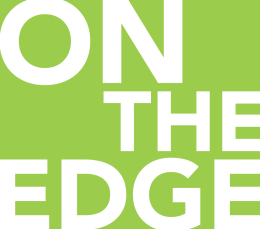There is no doubt that Coca-Cola is one of the most well-known and recognized brands in the world. Yet, having a product people enjoy isn’t the only thing needed to become one of the world’s most valuable companies. Captivating marketing and its 7-year-old slogan, “Open Happiness,” has driven the success of Coca-Cola. Open Happiness was a captivating and successful campaign that made consumers “feel something.” It focused on the company’s purpose and instill a shared purpose with consumers of making the world a happier place. But, did the marketing strategy float too far away from the actual product offering?
Coca-Cola thought so; and, recently the company revealed a new product-centric, “one brand” campaign, “Taste the Feeling.” This campaign will position Coca-Cola and its various brands (Diet Coke, Coke Zero, etc.) as synonymous with refreshment. Adam Padilla, CEO of consultancy Brandfire said, “’Open Happiness’ could be said about a lot of things, when you open anything. But when you talk about ‘Taste the Feeling,’ you have very strong connectivity with a feeling with Coke, and you also have the literal aspect of tasting it—the taste of happiness.”
With brands competing within a vast array of mediums and in a cluttered environment, do they now need to focus on reminding the consumer of the product rather than generating a feeling? Is emerging media paving the way for a new era of marketing? This shift in marketing with a major company is huge; it will be interesting to see how other brands react and follow!


Hi LaVella,
Coca-Cola is an icon! That said, they have had a great amount of successful campaigns. However, in regards to emotional connection, that should be what brands strive for. Coca-Cola has many campaigns that have fostered an emotional connection with the consumer. For example, the polar bear advertisements had a common theme that many consumers could relate to (bliss, enjoyment, and happiness) . In this case, Coca-Cola’s mission shines through, and the consumer can connect on a emotional desire with the brand. Similar to the example you shared, Coca-Cola’s strong feeling of happiness connects the audience to the brand. In the changing world of online media, consumers are constantly making decisions based upon emotion, and only rationalizing them logically after the emotional decision . Since most consumers think emotionally, brands can focus on the product, but the real-value comes from the emotional connection that consumers associate with certain brands.
Great post,
Marianne
LikeLike
Marianne, great insights! I agree with your comment on the real-value coming from the emotional connection that consumers associate with certain brands. But, it is interesting to think of what actually makes customers loyal? Davey claims there are three categories of brand loyalty: behavioral, rational, and emotional.
Behavioral loyalty. The consumer’s tendency to repurchase a brand, this is easy for brands to measure given the access to purchase information, but is not necessarily a good indicator of loyalty as repeat business could simply be a result of lack of alternatives or the effort required to change suppliers.
Rational loyalty. Also sometimes referred to as functional or cognitive loyalty, this is where the customer weighs up the value of the product or service to make a calculated decision about the relationship with the brand.
Emotional loyalty, a psychological preference and affective attachment.
What do you think of this? How can a brand leverage these categories of brand loyalty?
http://www.mycustomer.com/experience/loyalty/emotional-vs-transactional-loyalty-is-it-more-important-to-win-hearts-or-minds
LikeLike